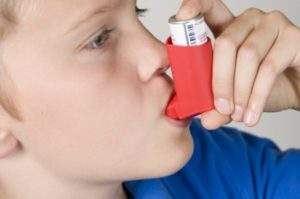Mold Exposure Can Affect Your Health

Allergies and Asthma
Hundreds of independent studies have been conducted throughout the years which have indicated that mold can play a significant role in upper respiratory health. Individuals who are already prone to allergic reactions and asthma attacks may find that being exposed to mold actually aggravates their symptoms or creates complications that make them much worse. Some individuals develop allergic reactions to the mold spores and fungal fragments themselves, thus leading to the development of allergic and asthmatic symptoms that never existed previously. If you or a loved one is having difficulty breathing inside of your home or notice an increase in coughing, wheezing, sneezing, or snoring, you may have a problem with mold that needs to be addressed right away.
Infection
It has been found that people who spend time in damp or moldy buildings where mold is present are much more likely to succumb to bronchial and respiratory infections. It is believed that bacterial emissions from the fungi could be responsible for the increased risk for infection. Other well-known fungal infections exist such as allergic bronchopulmonary aspergillosis, athlete’s foot, and thrush. While these three infections can occur even without exposure to indoor mold, exposure to fungi could increase risk.
Pulmonary Hemorrhage
Ongoing research is investigating the possible link between exposure to mold (especially mycotoxins from Stachybotrys chartarum) and the development of pulmonary hemorrhages. In layman’s terms, it has been suggested that being exposed to specific types of mold could trigger bleeding in the lungs, a serious condition that could lead to death.
Toxic Mold Syndrome
Stachybotrys chartarum is often referred to as “black mold” and has previously been identified in litigation as a cause of human illness. It is believed that toxic mold syndrome can lead to a wide range of upper respiratory complications and illnesses, as well as chronic fatigue, and even changes to behavior. You may also noticed moderate or severe headaches, itchy or watery eyes, or lethargy.
Reclaim Your Home
Recent flooding, small leaks, high levels of humidity, and a number of other factors could have led to the growth of mold in your Denver area home. Because even minimal exposure can cause serious and long-lasting health complications, it’s generally not recommended that homeowners attempt to address areas of the home that have been infiltrated by moderate to major mold growths. Trained professionals will have the knowledge, equipment, and expertise required to safely remove mold in its entirety so that there’s no risk of its insidious return.
If you suspect that mold may be the primary cause of your ailing health, we urge you to have your home professionally tested and assessed today. The experts at Abbotts Fire & Flood are capable of quickly detecting problem areas and can safely eliminate mold from your home. Give us a call to learn more today.

